Poland
participants
The EGiA focus group was organised in order to challenge and analyse the knowledge of the Polish youth regarding the mobility opportunities available for them as well as their awareness about their rights as EU citizens. The data were collected from the mobile and non-mobile students.
The focus group commenced with an agenda encompassing integration, an icebreaker involving names, and a brief introduction of ESN (Erasmus Student Network). During this introduction, participants were provided with insights into who ESN is and the initiatives undertaken for Erasmus students at the University.
Subsequently, the discussion revolved around various forms of student mobility. Notably, the Erasmus program, which includes internships, emerged as the most recognized form of mobility among students. However, the concept of volunteering abroad, free of charge, was a novel idea for many. Particularly, a group of architecture faculty students engaged in a detailed conversation with an active member of ESN UE Wrocław, who had a friend that volunteered in Valentia. The primary determinant for students' mobility decisions seemed to be the choice of destination.
The conversation then shifted to European citizens' rights. Focus group participants were aware of the existence of the European Parliament and their right to vote in European elections, but lacked clarity on the specifics of how and when to exercise this right. The predominant discussion centered on the ease of travel within European countries as European citizens and benefits of Schengen area.
When addressing barriers to mobility, the initial concern raised was housing crisis. Participants emphasized that money not only facilitates mobility experiences but also provides a sense of security in case of unforeseen circumstances. Language barriers were subsequently brought up as a significant challenge, highlighting the difficulty of navigating a foreign country without proficiency in the local language.
Each participant was given post-it notes to jot down their thoughts on the impact of mobility programs. After two minutes, these notes were shared aloud. The most commonly cited effect was the positive influence of mobility on job opportunities. In some instances, participants believed that Erasmus could enhance their language skills. Additionally, the group acknowledged the substantial improvement in soft skills, such as communication, during an Erasmus experience.
The entire group reached a consensus on the importance of opportunities like Erasmus. The ensuing discussion delved into its roles, including fostering cross-cultural understanding as an integral part of effective participation within the European Union. Participants also recognized the role of Erasmus in strengthening relationships between countries and universities, paving the way for potential collaborations. Beyond the educational aspect, Erasmus provided an avenue for young individuals to establish connections with other European Union residents, offering insights into cultural diversity and potential future job prospects.
Finally, the participants addressed the topic of future European elections. They collectively agreed that the key motivator to engage in the electoral process would be improved access to information regarding such elections.
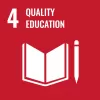
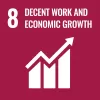
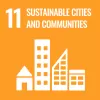
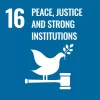
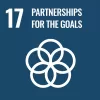
This activity is part of the project:
Erasmus Generation in Action (EGiA)